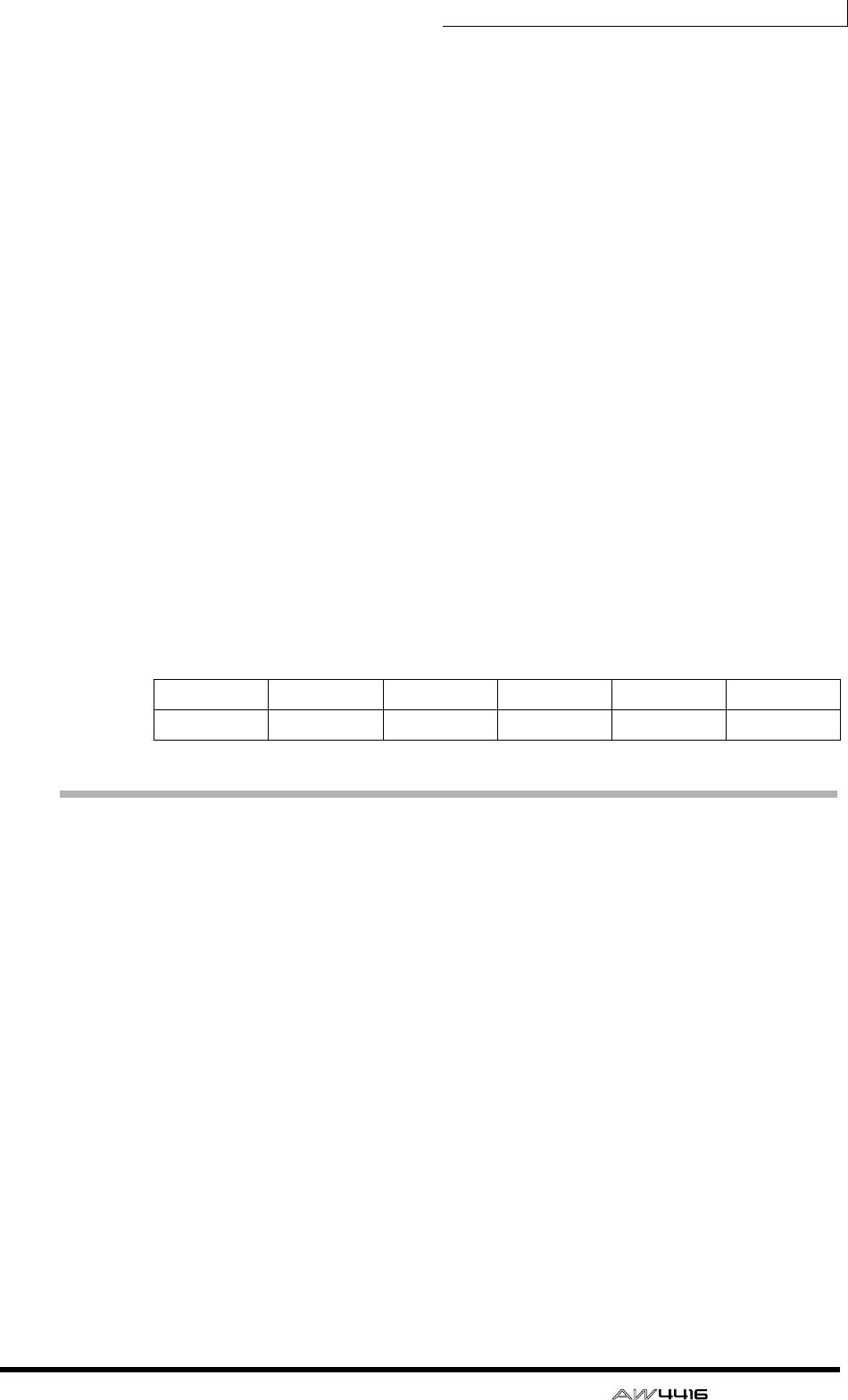
Tutorial—Mastering
— Tutorial 29
3. Move the cursor down to the scene number in the event list (it should be
“05” if you changed it as we suggested on page 24) and use the data dial
to change the scene number to “06”.
4. Now go back to the VIEW display or any other display you want to watch
while listening to the mastered automix.
❍ Equalization
As mentioned above, you won’t always need to do this, but overall master EQ
can be useful when you want to add a little brilliance or low end, or both, to a
finished mix. You might also find that some mixes are too “boomy” or “middly”,
and that applying a slight dip in the appropriate frequency range can clean things
up considerably.
The “So Fine” demo doesn’t need any EQ (at least we think so), so we’ll leave it
alone.
❍ Compression
You’ll probably end up using master compression a lot more than master EQ. The
trend these days in popular music is to squeeze as much level onto the final mas-
ter as possible without making the music sound unnatural (sometimes, on the
other hand, “unnatural” is a desirable goal). Some compression can also give the
mix more punch and presence.
The master compression settings for “So Fine” are not particularly extreme, but if
you feel the urge to experiment with other settings we encourage you to do so.
❍ So Fine Master Compression
Step 2: Record the Song to the Stereo Track
The AW4416 requires that your song be recorded to the stereo track before it can
be written to a CD. So once you’re satisfied with the master EQ and/or compres-
sion settings, record the song to the AW4416 stereo track, as follows:
1. Press the [ST] key to engage the STEREO track record mode (the key will
flash).
2. Locate to the top of the song and start recording (press the [REC] and
[PLAY] keys simultaneously).
3. Press the [STOP] key when the song has finished.
Simple, isn’t it?
THRESH. RATIO OUT GAIN ATTACK RELEASE KNEE
–10 1.7:1 +3.5 55 192 1


















